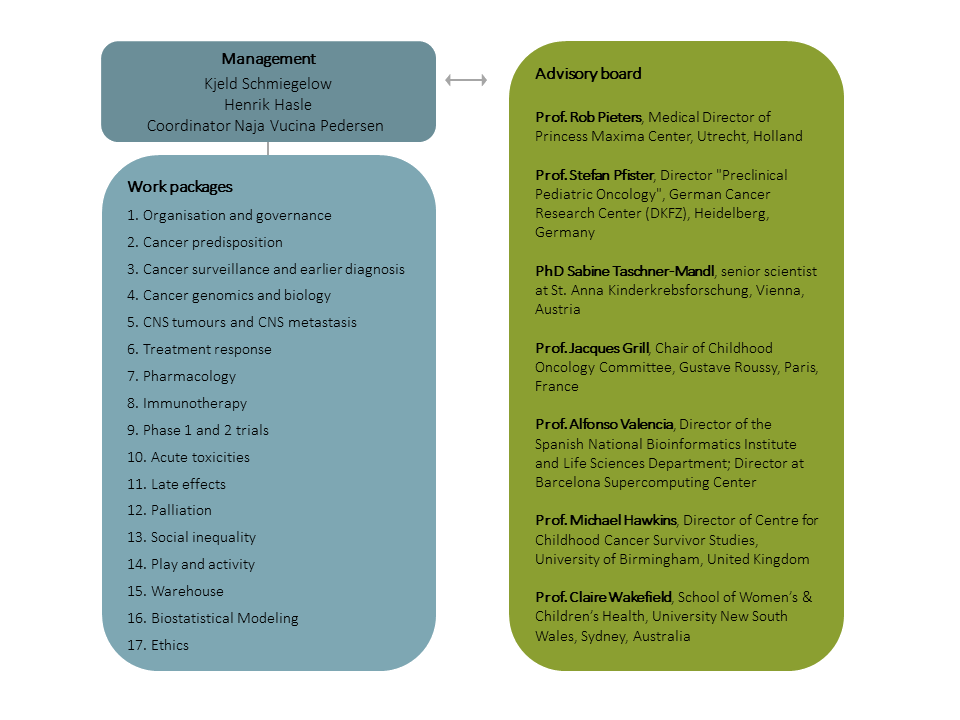20% of all childhood deaths above the age of one are related to cancer. The majority of cured patients are suffering from physical and psychosocial late effects including epilepsy, paralysis, memory problems, bone, kidney and heart injuries, diabetes and other hormonal disturbances, reduced fertility as well as two to three times increased risk of being struck by a second cancer disease.
National research centre for childhood cancer (CONTROL) aims at improving the survival for children affected by cancer, lessen side effects from treatment and enhance the children's quality of life by analysing the progress and biology of the disease, including genetic material from patients and cancer cells as well as to advance early diagnostics and develop new forms of treatment.
The objectives of the new research centre are to:
- Increase the overall 5-year survival from 80% to 90%
- Screen for cancer predisposition in the childhood age and secure/obtain earlier diagnostics and thereby better survival
- Reduce latency from the initial symptoms to diagnosis
- Develop new and less invasive methods for diagnostics and treatment monitoring
- Develop better treatment with reduced risk for acute and severe side effects
- Reduce the social inequality in survival for children with cancer
- Reduce the occurrence and severity of late effects for cured patients
The multidisciplinary research strategies of CONTROL cover all types of childhood and adolescent cancer (haematological cancer, brain tumours, extracranial tumours). The research centre is coordinated by the Department of Children and Adolescents at Rigshospitalet under the management of Professor and Consultant Kjeld Schmiegelow in collaboration with Professor and Consultant Henrik Hasle, Aarhus University Hospital.

